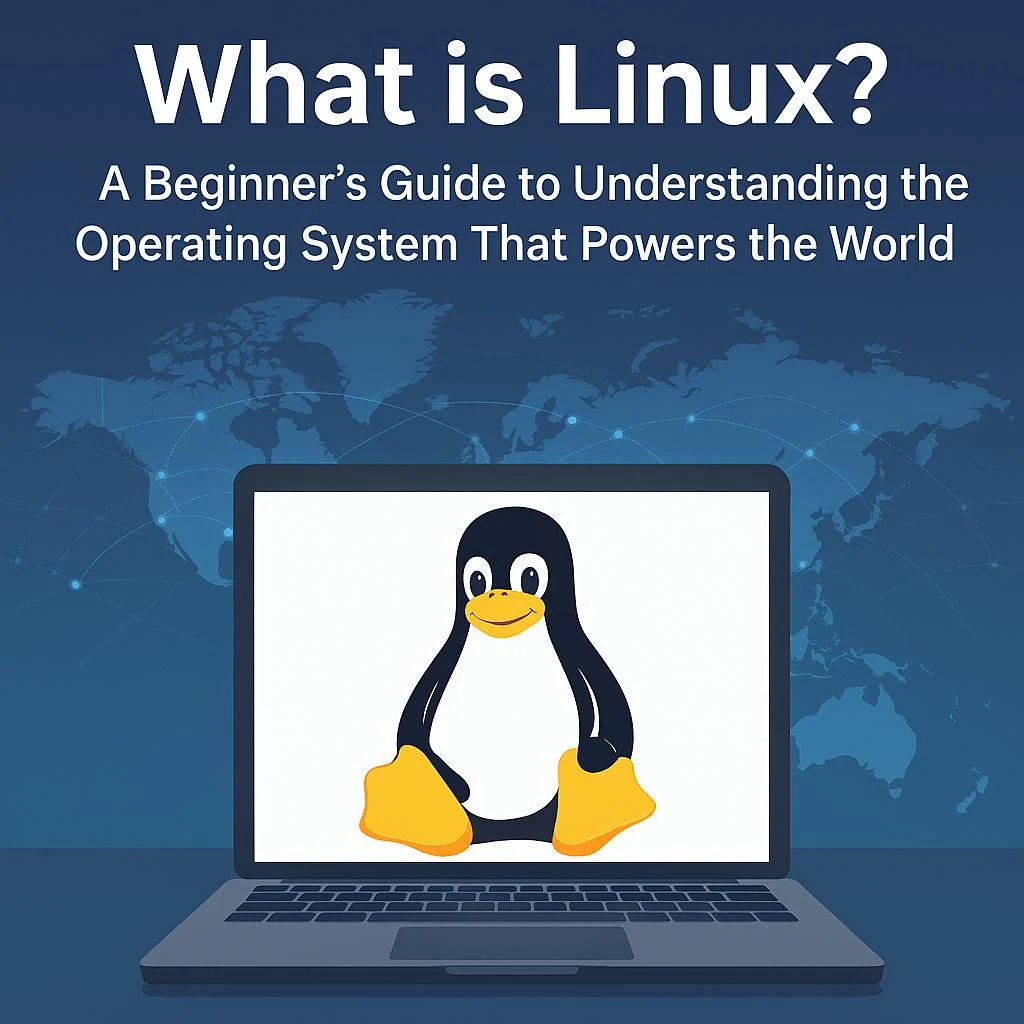
If you’ve ever wondered what Linux is, why techies rave about it, or whether you should learn it — you’re in the right place. In this beginner-friendly guide, we’ll break down Linux in plain English and show you how it’s quietly powering the world around you.
🔹 What is Linux?
Linux is a free and open-source operating system — just like Windows or macOS — but way more customizable. It powers everything from smartphones and laptops to servers, satellites, and supercomputers.
🔹 Why is Linux So Popular?
🧠 Open Source: Anyone can view, modify, or contribute to the code.
💰 Free: No license fees — ever.
🔐 Secure: Less vulnerable to viruses and malware.
⚙️ Stable: Perfect for servers and long-term projects.
💻 Flexible: Used in everything from gaming to cloud computing.
🔹 Where is Linux Used?
You’re probably using Linux right now and
don’t even know it. It powers:
Android phones
Smart TVs
Web servers (like Google, Facebook, and Amazon)
The International Space Station!
🔹 What are Linux Distributions?
A distribution (or distro) is a version of Linux
tailored for specific users. Some popular beginner-friendly ones:
Red Hat Enterprise Linux
Ubuntu – Most beginner-friendly
Linux Mint – Windows-like layout
Fedora – Cutting-edge updates
Debian – Rock-solid foundation
🔹 Who Should Learn Linux?
🔹 1. Aspiring System Administrators
If you’re aiming to become a SysAdmin, Linux is a must. Most servers run on Linux, especially in data centers and cloud environments like AWS.
🔹 2. DevOps Engineers & Cloud Professionals
Linux powers cloud platforms like:
🟢 AWS (Amazon Linux, Ubuntu)
🔵 Google Cloud (Debian-based)
🔴 Azure (Red Hat, CentOS)
DevOps tools like Docker, Jenkins, and
Kubernetes are built to run best on Linux.
🔹 3. Cybersecurity Enthusiasts
Ethical hackers and penetration testers rely on
Linux-based tools (like Kali Linux) for
vulnerability assessments and digital forensics.
🔹 4. Developers & Programmers
Developers benefit from:
Command-line tools.
Open-source environments.
Linux-native languages like C, Python, Ruby, Shell scripting.
🔹 5. College Students / CS Majors
Learning Linux early helps students master:
Shell scripting.
Git, cron jobs, file permissions.
Real-world troubleshooting
🔹 6. People Who Want to Revive Old Computers
Linux distros like Linux Mint, Lubuntu, or Zorin OS Lite give old PCs a new life — fast, lightweight, and free.
🔹 7. Anyone Interested in Open Source
Linux is the heart of the open-source movement. Learning it gives you access to a powerful, free ecosystem built by the community.
🚀 Conclusion:
Linux isn’t just for geeks — it’s for curious minds, tinkerers, and professionals who want control, speed, and security. In upcoming posts, we’ll show you how to get started with your very first Linux installation and basic commands.
